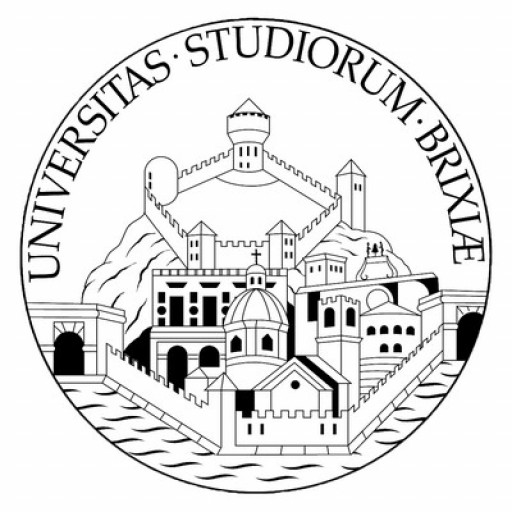Photos of university / #utwente
The Master's degree programme in Mechanical Engineering at the University of Twente offers a comprehensive and innovative education designed to prepare students for advanced careers in the design, development, and management of mechanical systems. This programme emphasizes a strong foundation in core mechanical engineering principles such as thermodynamics, mechanics, materials science, and product development, while also fostering interdisciplinary skills essential for tackling complex engineering challenges. Students have the opportunity to specialize in areas like manufacturing technology, mechatronics, sustainable energy systems, and robotics, aligning their education with current industry trends and societal needs.
The curriculum combines theoretical coursework with practical projects, laboratory exercises, and internships, providing students with hands-on experience that bridges academic knowledge with real-world applications. Through collaboration with industry partners and research institutes, students are exposed to cutting-edge innovations and sustainable engineering practices. The programme encourages critical thinking, creativity, and problem-solving skills, empowering graduates to lead interdisciplinary teams and drive technological advancements.
Furthermore, the University of Twente's strong focus on entrepreneurship and innovation offers students avenues to develop entrepreneurial skills and participate in startup ventures or research initiatives. The campus environment fosters an entrepreneurial mindset, supported by state-of-the-art facilities, dedicated innovation labs, and a vibrant community of scholars and industry professionals.
Graduates of the Mechanical Engineering Master's programme are well-equipped to pursue careers in various sectors, including manufacturing, aerospace, automotive, energy, and research & development. They are prepared to work as engineers, project managers, consultants, or entrepreneurs, contributing to technological innovation and sustainable development worldwide. With a curriculum that blends technical excellence with leadership and innovation, the programme aims to produce well-rounded professionals capable of addressing future engineering challenges with confidence and creativity.
The Mechanical Engineering Bachelor's program at the University of Twente offers students a comprehensive education in the fundamental principles and advanced techniques of designing, analyzing, and manufacturing mechanical systems. Throughout this program, students develop a solid foundation in mathematics, physics, and engineering sciences, which are essential for understanding complex mechanical processes and solving real-world engineering problems. The curriculum emphasizes a combination of theoretical knowledge and practical skills, preparing graduates to innovate and improve mechanical devices and systems across various industries.
In the first year, students are introduced to core subjects such as mechanics, thermodynamics, materials science, and design principles. They also learn fundamental skills in computer-aided design (CAD), programming, and experimental methods, which are crucial for modern engineering practice. This foundational year lays the groundwork for more specialized study and project-based learning in subsequent years.
The second year deepens students' understanding of advanced topics such as fluid dynamics, control systems, manufacturing processes, and mechanical reliability. Students also engage in group projects and laboratory work, fostering teamwork and hands-on problem-solving skills. Electives are available to tailor the learning experience according to individual interests, including areas like robotics, renewable energy, and sustainability.
In the final year, students undertake a major individual project that simulates real-world engineering challenges, often in collaboration with industry partners. They also select courses in innovative technologies and management, preparing them for interdisciplinary collaboration and leadership roles in their careers. The program concludes with a comprehensive graduation project, demonstrating their ability to integrate knowledge and skills to develop innovative solutions.
Throughout the curriculum, there is a strong focus on sustainability, efficiency, and the ethical implications of engineering decisions. Students are encouraged to think critically about how their designs impact society and the environment. The program also emphasizes the importance of entrepreneurship and innovation, equipping students with the skills needed to initiate new ideas and contribute to technological advancements.
Graduates of the Bachelor’s in Mechanical Engineering from the University of Twente are well-prepared for careers in diverse sectors, including manufacturing, automotive, aerospace, energy, and robotics. They may also pursue further specialization through Master’s programs or engage in research and development roles. The program’s blend of scientific rigor, practical experience, and focus on innovation ensures that students are ready to meet the engineering challenges of the future.
Program requirements for the Master's in Mechanical Engineering at the University of Twente include a completed Bachelor's degree in Mechanical Engineering or a related field from an accredited university. Applicants must have a solid foundation in core engineering principles, including mechanics, thermodynamics, fluid dynamics, and materials science. A minimum GPA or academic performance equivalent to the university's standards is generally expected. Proficiency in English must be demonstrated through standardized tests such as IELTS or TOEFL, with minimum scores established by the university. Relevant work experience or internships in mechanical engineering or related disciplines can strengthen an application but are not mandatory. Applicants should submit a motivation letter outlining their interest in the program and how it aligns with their career goals. Additionally, several programs may require a resume/CV highlighting academic achievements, projects, publications, and relevant skills. To be admitted, applicants may also need to provide references from academic or professional contacts. The admission process assesses the applicant's academic history, motivation, and potential for success in the program. Once admitted, students are expected to have a basic understanding of mathematical concepts, programming skills, and knowledge of engineering design principles. The program emphasizes interdisciplinary learning, so a willingness to collaborate across disciplines is essential. The university encourages applicants to upload all relevant documents through the online application portal before the deadlines. In some cases, entrance assessments or interviews may be part of the selection process. It is recommended to review the specific program webpage for any updates or additional requirements, as these can vary depending on the candidate's background and the year of application.
The financing of the Mechanical Engineering master's programme at the University of Twente is structured to support both Dutch and international students through a variety of funding options. Prospective students can explore scholarships, grants, and loan opportunities to finance their studies. The University of Twente offers several scholarship programmes, such as the Holland Scholarship, which is aimed at excellent international students from outside the European Economic Area (EEA). Additionally, there are specific faculty scholarships and financial aid options that may be available based on academic merit or financial need.
Students from the European Union (EU) and the Netherlands typically fund their studies through personal savings, family support, or student loans. The Dutch government offers student loan schemes through the Dienst Uitvoering Onderwijs (DUO), which can cover tuition fees and living expenses for eligible students. International students from outside the EU/EEA are advised to seek scholarships or private funding sources as their options may be more limited.
The Master's programme generally has tuition fees that vary depending on the student's nationality. For EU/EEA students, the fees are set by the Dutch government and are relatively affordable. Non-EU/EEA students generally pay higher tuition fees, which can be substantial; therefore, they are encouraged to seek scholarships or sponsorships to offset costs. The university also provides guidance and information on external scholarship opportunities offered by government agencies, private organizations, and industry partners.
In addition to scholarships, students are encouraged to explore part-time work options, internships, or industrial placements that can provide financial support and valuable practical experience. The university’s strong ties with industry partners may facilitate such opportunities, making it easier for students to balance work and study commitments.
Overall, financing a Master's in Mechanical Engineering at the University of Twente involves a combination of university-provided scholarships, government loans, personal resources, and possibly external funding. Prospective students should thoroughly research all available options and plan their finances well in advance to ensure a smooth educational journey.
Mechanical Engineering at the University of Twente is a comprehensive and innovative programme designed to prepare students for a wide range of careers in the field of mechanical systems and technologies. The programme integrates fundamental engineering principles with practical application, emphasizing sustainable and intelligent solutions. During their studies, students gain profound knowledge of mechanics, thermodynamics, materials science, and manufacturing processes, alongside advanced skills in design, analysis, and project management.
The curriculum is structured to promote both theoretical understanding and practical experience through project-based learning, internships, and collaborations with industry partners. Students have the opportunity to work on real-world problems and develop innovative solutions, fostering creativity and entrepreneurship. The programme encourages multidisciplinary approaches, combining elements from mechanical engineering, mechatronics, and systems engineering, to address complex challenges such as energy efficiency, automation, and sustainable mobility.
The University of Twente emphasizes a student-centered learning environment, with small class sizes and close supervision by faculty members. Innovative teaching methods include flipped classrooms, hands-on laboratories, and virtual simulations, ensuring that students are well-equipped with modern skills. The programme also offers specializations and electives allowing students to tailor their studies to their interests, such as renewable energy, robotics, or materials engineering.
Graduates of the Mechanical Engineering programme at the University of Twente are well-prepared for a variety of roles in industry, research, and academia. They possess not only technical expertise but also critical thinking, problem-solving skills, and an entrepreneurial mindset. The programme is accredited and aligned with international standards, facilitating global career opportunities. Overall, it provides a challenging, engaging, and forward-looking education that combines scientific excellence with societal relevance, making it an excellent choice for aspiring mechanical engineers.








